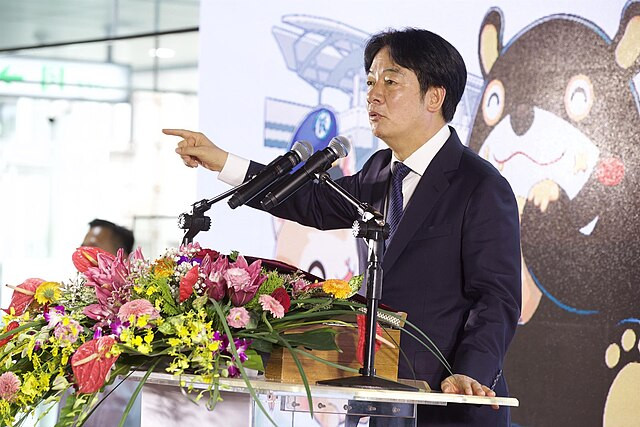Taiwanese President Lai Ching-te on Friday announced plans to build a new multi-layered air defense network known as "T-Dome," part of a sweeping modernization effort to fortify the island against growing Chinese military pressure. The announcement, made during his National Day address in Taipei, underscores Lai's pledge to boost defense spending and accelerate the island's domestic weapons production amid an increasingly volatile cross-strait environment.
"The increase in defense spending has a purpose; it is a clear necessity to counter enemy threats and a driving force for developing our defense industries," Lai said. He added that Taiwan will "accelerate our building of the T-Dome, establish a rigorous air defense system in Taiwan with multi-layered defense, high-level detection, and effective interception, and weave a safety net for Taiwan to protect the lives and property of citizens."
Lai said a special defense budget will be proposed before year's end to fund the program, which marks his first public mention of the system. A senior official from the presidential office told reporters the initiative would be included in the government's upcoming spending plan, describing it as a key step toward a "more thorough air defense net with a higher interception rate."
The system's design, according to one source cited by Reuters, aims to emulate Israel's Iron Dome-an integrated radar and missile shield renowned for intercepting short- and mid-range projectiles. Taiwan's existing defense network relies heavily on U.S.-made Patriot missiles and the domestically developed Sky Bow series. Last month, Taiwan unveiled its new mid-range missile, the "Chiang-Kong," capable of intercepting targets at altitudes higher than the Patriot's range.
Beijing quickly denounced Lai's remarks, accusing him of "seeking independence by force." Chinese Foreign Ministry spokesperson Guo Jiakun said Lai "peddles the separatist fallacy of Taiwan independence," calling him "a troublemaker, creator of danger and a war-maker." China's state broadcaster CCTV quoted the Taiwan Affairs Office as vowing to "unite the Taiwan compatriots" against separatism, calling "reunification" the path to "peace and stability."
Lai urged Beijing to "renounce the use of force or coercion to change the status quo," drawing historical parallels to global conflicts. "Looking back at World War Two, we see that so many experienced the suffering of war and the pain of invasion," he said. "We should learn from these lessons and ensure that the tragedies of history are never repeated."
Taiwan's Ministry of National Defense has warned that Chinese military incursions around the island have grown more frequent, with near-daily sightings of Chinese warplanes and naval vessels crossing the median line of the Taiwan Strait. Analysts say the new T-Dome network could integrate with existing early-warning and missile-interception systems to strengthen deterrence against potential Chinese air and missile attacks.
A U.S. administration official said Washington welcomed Lai's call for peace and commitment to bolster defense readiness. "We're not going to speculate on how Beijing might react," the official said. "But our general policy is that we don't think routine speeches should be used as a pretext for taking any sort of coercive or military action."





